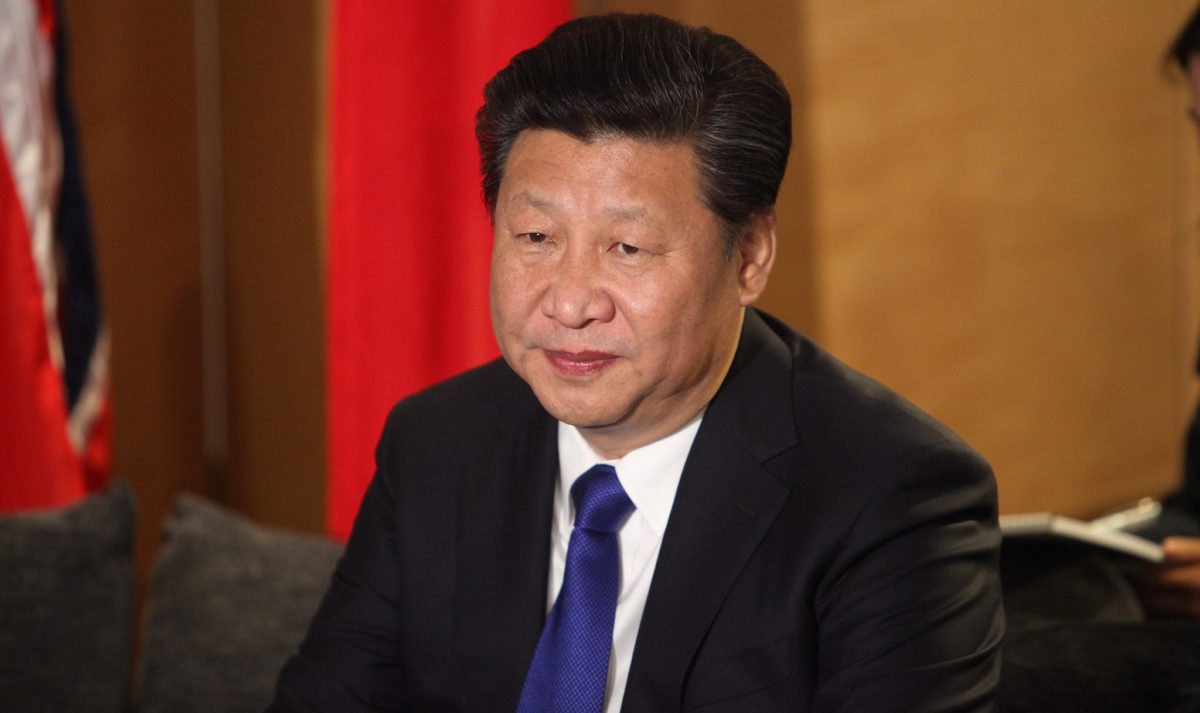This week it was the turn of Chinese president Xi Jinping to visit Greece, following a trip by counterpart Kyriakos Mitsotakis the other way last week, as a delegate at the China International Import Expo 2019 where the two leaders met up.
With China keen to expand its influence in Europe as part of its continent-spanning Belt and Road infrastructure project, and with Chinese state-owned shipping company Cosco owning a majority stake in the major shipping port of Piraeus, Xi’s two-day visit heralded the signing of 16 trade deals and memoranda of understanding.
Though PV was absent from the list of subjects directly addressed by representatives from the two nations’ business communities, the solar industry is expected to be among the beneficiaries from two developments that emerged from the state visit.
Grid investments
The State Grid Corporation of China, the world’s biggest utility, signed a commitment to back a new electricity interconnector between the Greek mainland and Crete that is expected to unlock more solar capacity on the island as well as helping Greece vary its electric loads as it aims to phase out coal by 2028.
Beijing’s interest in the 134km subsea and 42km underground AC cable – described as “the longest submarine-underground AC cable interconnection in the world” by Greek transmission grid company Admie – is linked to China’s holding of a 24% stake in the grid company since 2017.
Grid restraints on sun-drenched Crete limit the amount of solar capacity which can be deployed there for anything other than self-consumption but the promised interconnector – which is supported by EU funding and expected to be operational next year – will offer more opportunity for exporting excess solar electricity back into the grid.
50 MW CSP investment
The arrangement appears to have already borne dividends with London-based solar developer Nur Energie committing to a 50 MW concentrating solar power (CSP) facility on the island, during Xi’s visit.
The Nur Energie deal included an agreement with the Industrial and Commercial Bank of China, as well as with China’s Energy Engineering Group to collaborate on development of the Cretan CSP plant.
Popular content
Bank of China to open branch in Greece
The CSP project is indicative of the potential benefits for the Greek renewables industry of the arrival of two of China’s ‘Big Four’ state-owned banks in the nation.
Bank of China, the world’s fourth largest lender, agreed to establish a branch in Greece during the trade visit and world number one the Industrial and Commercial Bank of China will establish a representative office. It is expected both institutions will invest in renewable energy to give Beijing ownership of a significant proportion of Greece’s clean energy infrastructure.
The visit also saw Mitsotakis open up domestic projects to Chinese investors, including Greek wind farms, and the nations pledged to work to roll out a planned investment in building a fourth terminal at Piraeus. The World Maritime News website and the South China Morning Post newspaper last month reported the Greek Committee of Planning and Development of Ports had approved a planned €612 million investment by Cosco aimed at upgrading the port but had blocked an additional €300 million bid for a new terminal. According to the two media outlets, the committee felt conditions had “not matured sufficiently” for the extra terminal, and recommended Cosco resubmit its plans at a later date.
The state-owned shipping company wants Piraeus as China’s gateway to Europe, the Middle East and Africa and the Chinese and Greek administrations signed a memorandum of understanding during Xi’s visit aimed at defining the conditions which must be met for the investment to come to fruition.
Although Greece’s heavily indebted Public Power Corporation was not the subject of any of the new trade agreements, China is understood to also be keen to own a slice of the nation’s electricity distribution networks.
The Mitsotakis administration is casting the net wide for strategic overseas investment to help finance a new energy policy focused on renewables and in August, the Greek and German governments agreed a 10-year green investment plan.
This article was amended on 13/11/19 to include details about the Piraeus port investment carried by World Maritime News and the South China Morning Post.
This content is protected by copyright and may not be reused. If you want to cooperate with us and would like to reuse some of our content, please contact: editors@pv-magazine.com.


2 comments
By submitting this form you agree to pv magazine using your data for the purposes of publishing your comment.
Your personal data will only be disclosed or otherwise transmitted to third parties for the purposes of spam filtering or if this is necessary for technical maintenance of the website. Any other transfer to third parties will not take place unless this is justified on the basis of applicable data protection regulations or if pv magazine is legally obliged to do so.
You may revoke this consent at any time with effect for the future, in which case your personal data will be deleted immediately. Otherwise, your data will be deleted if pv magazine has processed your request or the purpose of data storage is fulfilled.
Further information on data privacy can be found in our Data Protection Policy.